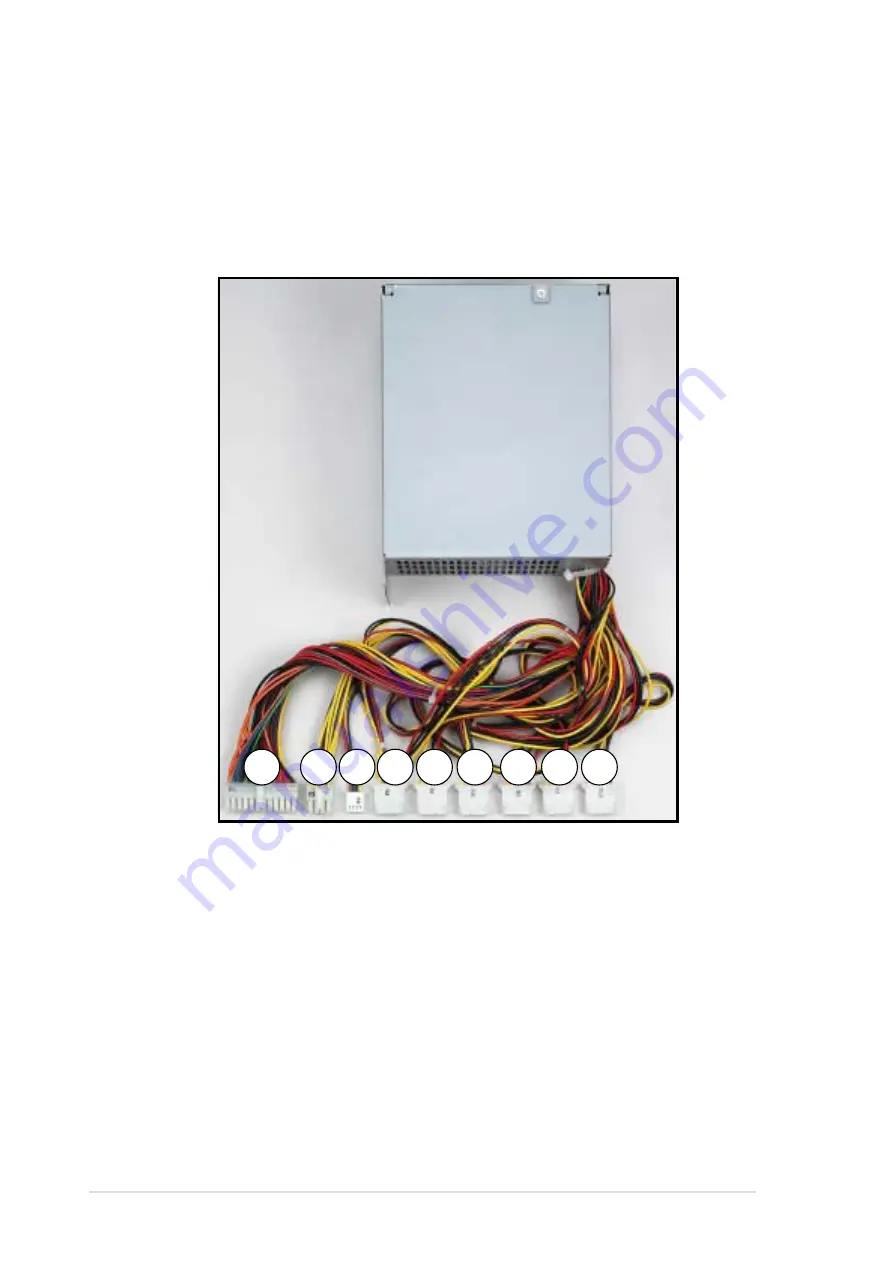
Chapter 3: Installation options
A-2
A.1
General description
The server comes with an SSI-type 450W ATX power supply with universal
AC input that includes PFC and ATX-compliant output cables and
connectors. The power supply has nine plugs labeled P1 to P10 (no P3).
Take note of the devices to which you should connect the plugs.
P1
Motherboard 24-pin ATX power connector
P2
Motherboard 8-pin +12V AUX power connector
P4
Floppy disk drive
P5
Peripheral device (second backplane, if present)
P6
Peripheral device (available)
P7
Peripheral device (second backplane, if present)
P8
Peripheral device (first backplane, if present)
P9
Peripheral device (first backplane, if present)
P10 Peripheral device (optical drive)
P10
P2
P4
P5
P6
P7
P8
P9
P1



































